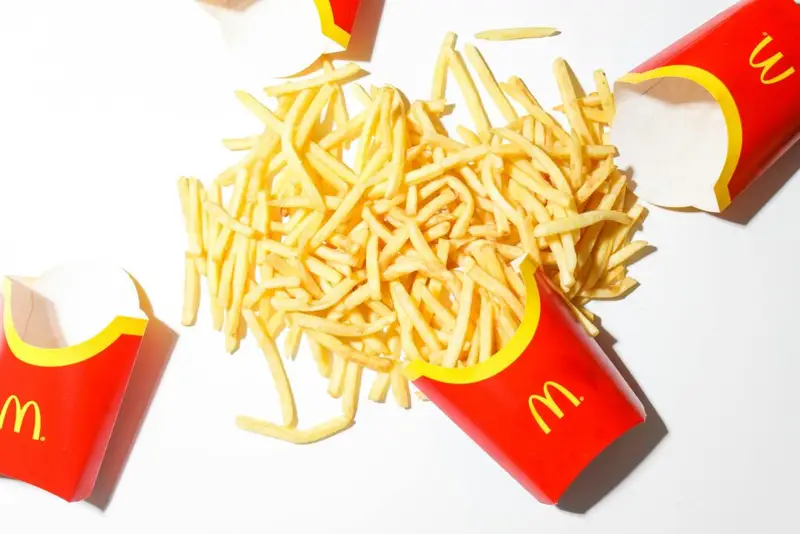
In July 2025, the U.S. Food and Drug Administration (FDA) announced a major recall. This recall affected 64,800 pounds of butter made by Bunge North America Inc. The product was called NH European Style Butter Blend, and it came in 1-pound packages.
This recall happened because the butter contained milk. The problem: the label did not list milk as an ingredient. This means the butter had undeclared milk.
Milk is one of the top nine food allergens. People who are allergic to milk can get very sick if they eat food that contains milk but does not say so on the label. This FDA butter recall aims to protect those consumers.
What Triggered the FDA Butter Recall?
The recall started on July 14, 2025. Bunge North America found that their butter contained milk but did not list it on the package. The lot affected was marked by the code 5064036503.
The butter was sold in 1,800 cases. Each case had 36 blocks of butter. The butter was shipped to 12 places in the United States and 1 place in the Dominican Republic.
Since milk allergies can be serious, Bunge quickly pulled the product from shelves. The FDA stepped in to regulate and oversee the recall.
What is a Class II Recall?
The FDA classifies recalls into three classes based on risk:
- Class I: The highest risk. The product may cause serious illness or death.
- Class II: Medium risk. The product may cause temporary health problems or reversible harm. Serious problems are unlikely.
- Class III: Low risk. The product is not likely to cause health problems.
This butter recall was raised to a Class II recall on July 30, 2025. This means the risk is real but usually temporary or can be treated.
Why is Milk Allergy So Serious?
Milk allergy happens when the immune system wrongly sees milk proteins as a threat. When someone allergic eats milk, the immune system reacts. The symptoms can be mild or very bad.
Mild symptoms include:
- Skin rash or hives
- Swelling around the lips or face
- Itching or tingling in the mouth
- Vomiting or stomach pain
Severe symptoms might be:
- Trouble breathing
- Swelling of the throat
- Fainting or dizziness
- Anaphylaxis (a life-threatening reaction requiring immediate treatment)
Milk allergy affects around 2-3% of children and fewer adults. Even a small amount of milk can trigger reactions.
This is why allergen labeling is so important. People rely on labels to avoid allergens. A missing milk label can lead to accidental exposure.
How Does the FDA Decide the Recall Level?
The FDA looks at how risky the product is. They think about:
- How severe the health problems can be
- How likely people will eat the product
- Whether the problem is a labeling mistake or contamination
- If there have been any reported illnesses
In this butter recall, no illness was reported by August 2, 2025. But the FDA still considered undeclared milk a clear health risk for allergic people. Since this risk is serious but usually treatable, the recall was rated Class II.
What are the Health Risks of Undeclared Milk in Butter?
For most people, eating this butter is safe. The risk is for those who have milk allergies. Eating undeclared milk can cause:
- Mild to moderate reactions, like hives and stomach upset
- Severe reactions, especially anaphylaxis, which needs emergency care
Even a tiny milk protein trace can trigger a reaction. This is why strict labeling rules exist.
How Does the FDA Butter Recall Protect Consumers?
The FDA monitors food safety closely. When they find problems like undeclared allergens, they act fast.
They ask consumers to check if they have the recalled butter by looking at the lot code: 5064036503.
If you have the product, do not eat it. Return it to the place you bought it or throw it away safely.
If you or someone you know eats the recalled butter and gets allergy symptoms, seek medical help immediately.
What Should Consumers Do?
- Check your butter: Look for the lot number 5064036503.
- Stop eating it: Do not risk it if you have a milk allergy.
- Return or discard: Take it back to the store or throw it away.
- Watch for symptoms: Hives, swelling, difficulty breathing, vomiting, or dizziness.
- Seek help fast: Use an epinephrine injector if you have one and call emergency services.
- Inform family and friends: Let others know about the recall too.
What Can Food Companies Learn?
This FDA butter recall shows how important it is to:
- Check ingredients carefully
- Make sure all allergens are listed on labels
- Train workers on allergen control
- Audit production and packaging processes
Mistakes in allergen labeling can endanger lives and cause costly recalls.
How Does the FDA Monitor Allergens?
The FDA requires food companies to follow the Food Allergen Labeling and Consumer Protection Act (FALCPA). It says major allergens must be listed clearly on food products.
Milk, eggs, peanuts, tree nuts, fish, shellfish, soy, wheat, and sesame are the major allergens.
The FDA also performs inspections, testing, and reviews to ensure compliance.
Why Are Recalls Like This Important, Even Without Illness Reports?
Just because no illnesses are reported does not mean that no one was at risk. Sometimes, people don’t report mild reactions or do not link symptoms to the product.
Acting early helps prevent harm and builds trust in food safety systems.
Global Importance of Allergen Information
The butter recall affected not just the U.S. but also the Dominican Republic. Food supply chains cross borders. It is important for countries to work together to make sure allergen rules are followed worldwide.
Consumers everywhere depend on accurate labels to stay safe.
Summary: The Key Points About the FDA Butter Recall
- The butter recall involves 64,800 pounds of Bunge’s European Style Butter Blend.
- The product had undeclared milk, which is a serious allergen.
- The FDA raised the recall to Class II due to the risk of allergic reactions.
- No illnesses were reported, but the risk of temporary or reversible adverse effects is real.
- Milk allergy symptoms range from mild to severe, including life-threatening anaphylaxis.
- Consumers should check, stop use, and return or discard recalled butter.
- Food companies must rigorously check their labels and ingredients.
- FDA enforces strict laws and works to protect consumers.
What You Should Remember
If you have a milk allergy, always read labels carefully. Even trusted brands can have mistakes.
Stay informed by checking FDA recall notices regularly. The recall of Bunge’s butter serves as a warning for all consumers.
For allergy sufferers, carry emergency medicine like epinephrine and know how to use it.
Final Thought
Food safety is a shared responsibility. The FDA, manufacturers, and consumers must work together.
The FDA butter recall shows how important it is to have clear, honest food labels. It reminds us that vigilance saves lives.
This article is for information only. It is not medical advice. Contact a doctor if you have questions about allergies or after eating recalled food.


